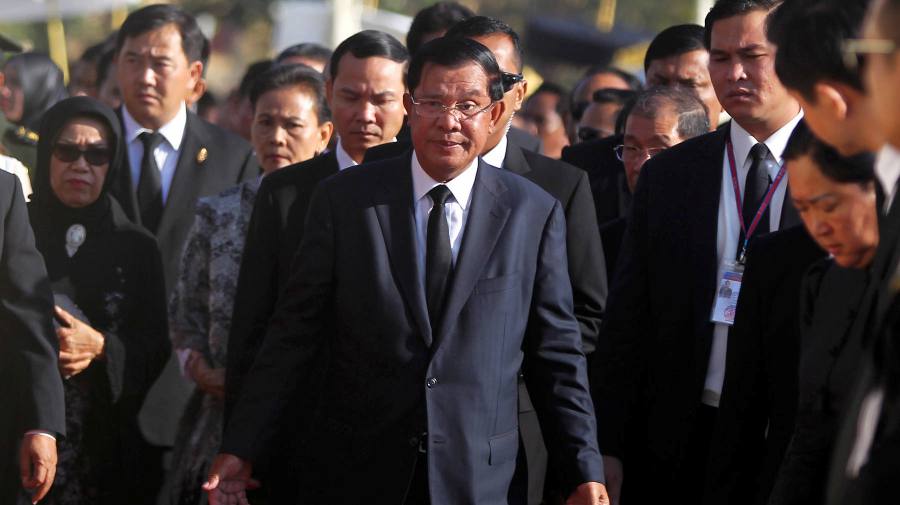
Cambodian Prime Minister Hun Sen say that revenues from the tax and customs departments are key contributor to the nation’s economic growth. - Reuters/File pic
By New Straits Times - January 6, 2020 @ 12:11pm
PHNOM PENH: Cambodia’s good economic performance last year helped it surpass its tax collection targets by more than 34 per cent.
Its sound macro-economic performance coupled with political stability resulted in collections of US$6 billion in tax last year, up more than US$1.485 billion from the government’s target.
The Phnom Penh Post said that of the figure, US$2.26 billion was collected by the General Department of Customs and Excise, and US$2.3 billion by the General Department of Taxation.
Last December, Prime Minister Hun Sen said that revenues from the departments were a key contributor to the nation’s economic growth, and the targets were surpassed in November.
Cambodia Chamber of Commerce vice-president Lim Heng credited the higher than projected revenues to sound macro-economic activity and political stability, saying they had fostered a positive environment for businesses and investment.
“We import a lot of goods to address the sharp increase in domestic consumption, which reflects Cambodia’s greater purchasing power. This will generate further revenue,” Heng said.
“With the increase of new businesses last year, and existing firms and investments also growing, the government was able to generate more revenue from taxes.”
Garment Manufacturers Association in Cambodia deputy secretary-general Kaing Monika echoed Heng, saying that economic stability had contributed to the “remarkable increase”.
“The rise in tax revenue confirms the resilience of the Cambodian economy and more effective tax collection.
“Moving forward, the General Department of Taxation should focus more on broadening the tax base, rather than squeezing existing taxpayers.”
Monika added that the one per cent pre-payment of tax on income remained a challenge for the private sector.
“Abolishing this type of tax may attract more investment, particularly foreign direct investment. The government wouldn’t lose any revenue on an annual basis, it would just wait to collect it at the end of the year.”
An International Monetary Fund report said that the increase in revenue had helped maintain low public debt and increased government deposits, but urged for restraint in non-developmental spending.
“Directors considered that fiscal governance should be further improved to raise revenue collection, manage fiscal risks from public-private partnerships and increase spending efficiency, including by strengthening public investment management and reduce opportunities for corruption.”

No comments:
Post a Comment